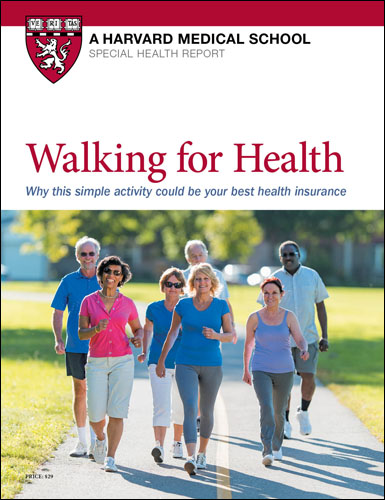Counting steps as good as time tracking for monitoring heart health
Research we're watching
- Reviewed by Christopher P. Cannon, MD, Editor in Chief, Harvard Heart Letter; Editorial Advisory Board Member, Harvard Health Publishing

Advice about the amount of activity required to stave off heart disease is usually expressed as a time-based goal. Now, new research suggests that counting steps may be just as good for predicting the risk of cardiovascular disease and death from all causes.
Published online May 20, 2024, by JAMA Internal Medicine, the study included 14,399 women who were free of heart disease and cancer when the study began. Their average age was 72. They measured their activity using a hip-worn activity tracker for a week, and then completed annual questionnaires about their health habits, medical history, and other personal data. The amount of moderate-to-vigorous physical activity they did ranged from 20 to 149 minutes per week, while their step counts ranged from 3,691 to 7,001 per day. After a median follow-up of nine years, researchers found that both time and steps had similar associations with cardiovascular disease and death rates from any cause. Current federal guidelines recommend that adults get 150 minutes per week of moderate-intensity physical activity per week. But older people could instead target about 7,000 steps per day.
Image: © Maskot /Getty Images
About the Author

Julie Corliss, Executive Editor, Harvard Heart Letter
About the Reviewer

Christopher P. Cannon, MD, Editor in Chief, Harvard Heart Letter; Editorial Advisory Board Member, Harvard Health Publishing
Disclaimer:
As a service to our readers, Harvard Health Publishing provides access to our library of archived content. Please note the date of last review or update on all articles.
No content on this site, regardless of date, should ever be used as a substitute for direct medical advice from your doctor or other qualified clinician.
















